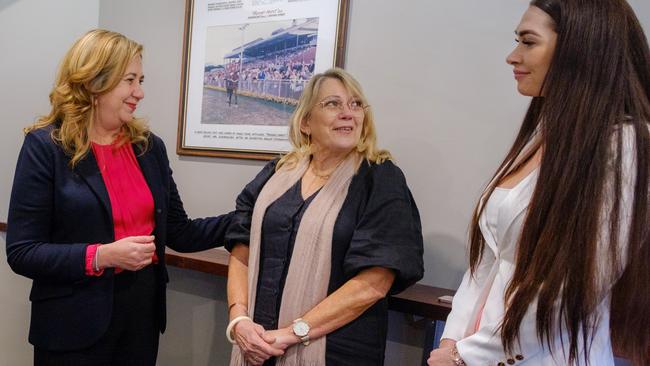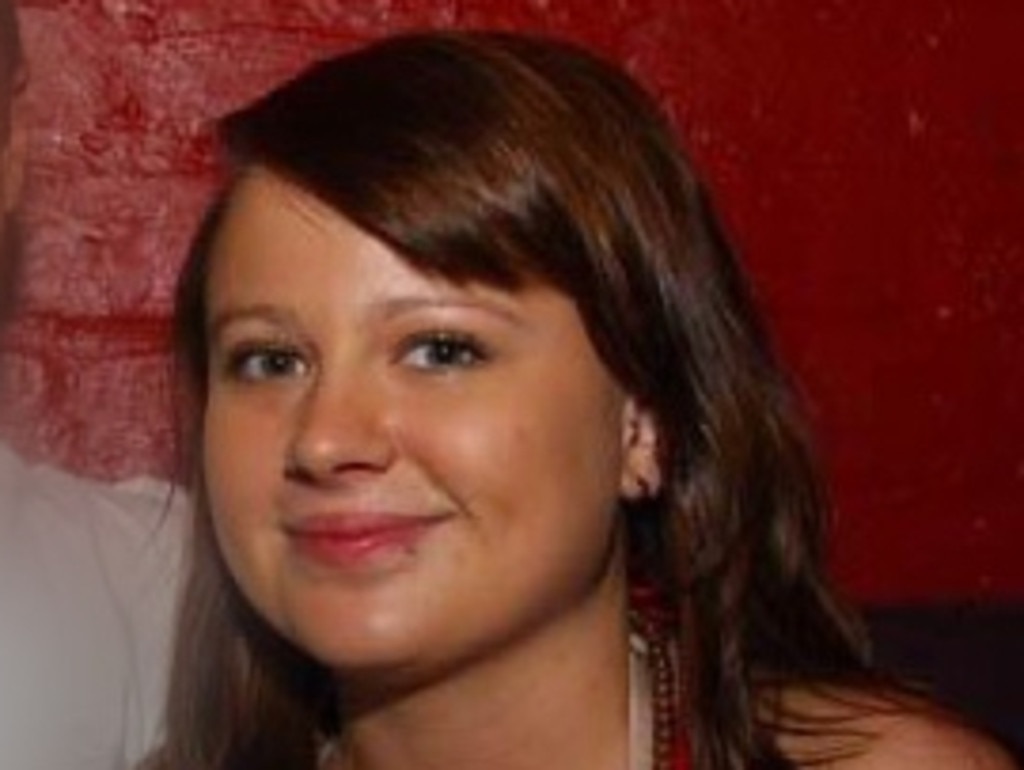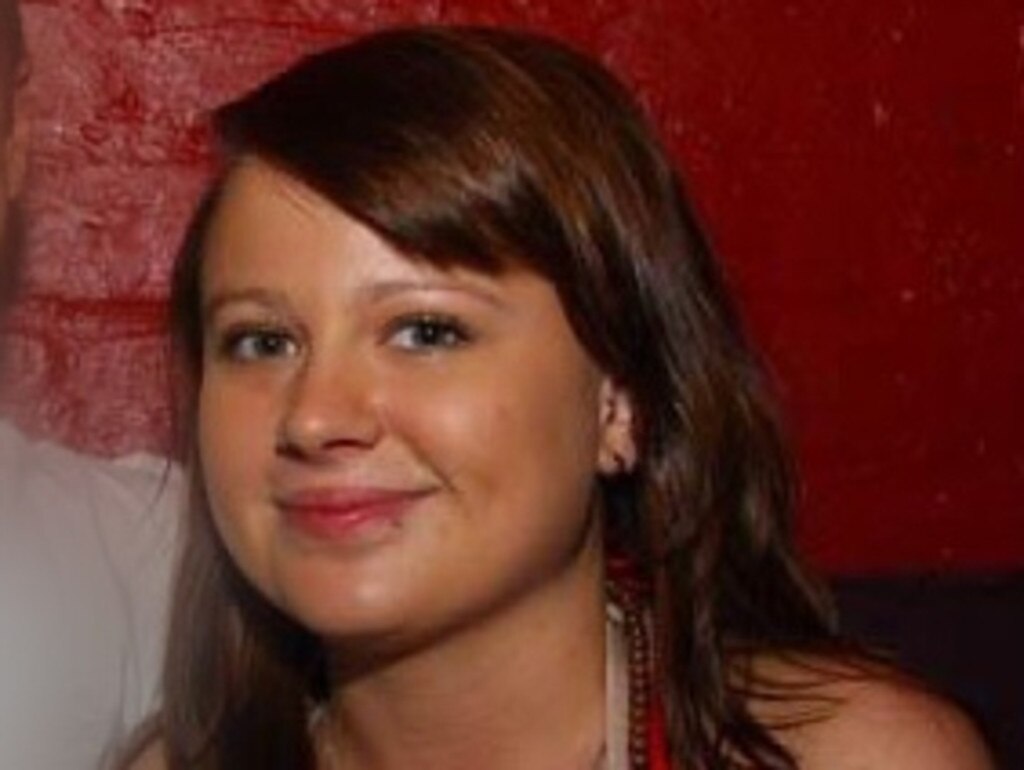Shandee’s story: chance for justice for Blackburn after lab’s DNA failures
Hundreds of unsolved crimes can be investigated over potentially botched DNA testing in a royal commission-style inquiry.

Hundreds of unsolved crimes, including rapes and murders, can be investigated over potentially botched DNA testing in a powerful royal commission-style inquiry to be led by one of Queensland’s most respected retired judges.
Queensland’s unusually high threshold for testing DNA has been abandoned while former Court of Appeal president Walter Sofronoff leads a six-month public commission of inquiry into the “systems and processes” of the government-run forensic laboratory.
Last week, The Australian revealed police were reviewing hundreds of rape cases back to 2018 after finding DNA profiles could be generated in up to 66 per cent of samples the lab initially claimed had “insufficient DNA for further processing”.
Problems in the lab were exposed in Shandee’s Story, The Australian’s investigative podcast series trying to establish why the vicious 2013 stabbing murder of Shandee Blackburn, 23, remains unsolved.

Announcing the inquiry on Monday, Premier Annastacia Palaszczuk paid tribute to Shandee and said the public must have confidence in the reliability of results coming out of the lab.
“It is clear to me that nothing short of a full, open and rigorous commission of inquiry can restore confidence in DNA testing in this state,” the Premier said. “(Walter Sofronoff) will not leave any stone unturned.”
Mr Sofronoff will choose his staff, have discretion over what cases to examine and how far back to investigate the lab, with terms of references to be released this week. The inquiry will receive submissions and hold public and private hearings “in a manner the commissioner sees fit”.
The announcement came five days before, what would have been, Shandee’s 33rd birthday. Her mother, Vicki Blackburn, hopes the inquiry will bring justice to victims and their families.
“As lengthy and protracted and expensive as it may be, all of those people who have been denied justice, they need their chance at justice,” Ms Blackburn said.
“I am sure they will find scientists who have been shocked about what has been going on for years but have not had an avenue to do anything about it.”
Shandee’s older sister, Shannah Blackburn, said it was clear the lab had been “broken” for years.
“We have had to fight and fight and fight, just for the truth,” Shannah said. “Families should not have to do that, truth should be aligned with justice.
“At the end of all of this, the hope is that this is a legacy for Shandee, to know that other families will not have to suffer more grief than they already do.”
The Queensland government had for months resisted calls from victims, lawyers and forensic experts for a public and independent inquiry into the lab, instead opting for a closed-door review.
Ms Palaszczuk said concerns from police that scientists had not been fully testing samples from crime scenes that could contain DNA evidence had “elevated the seriousness” of the issue. Almost 600 crime scene samples were not tested by the lab in 2021 and were reported to police as having “insufficient DNA” because they did not meet Queensland’s unusually high threshold for testing.
The Australian revealed in February that, to progress to DNA profiling, the lab required crime scene samples to have the equivalent of at least 22 cells to be fully tested, double the number of cells required in NSW.
Health Minister Yvette D’Ath ordered those thresholds be immediately removed on Monday.
Police asked the lab to review its DNA threshold last December, weeks after forensic biologist Kirsty Wright joined The Australian’s Hedley Thomas to expose alleged forensic failings in Shandee’s case.
Dr Wright found the lab failed to generate DNA profiles from crime-scene evidence where it would normally be expected, such as from blood and skin samples.
Shandee’s former boyfriend, John Peros, was acquitted of the murder by a jury in 2017, before Coroner David O’Connell found in 2020 he did kill her. He denies involvement.
Rather than Shandee’s being an isolated case, Dr Wright has for months believed the lab concealed systemic issues with its testing methods and procedures, putting the public at risk from serious and violent offenders who were not being identified and brought to justice.
Dr Wright said she supported the inquiry and was confident Mr Sofronoff would “get to the bottom of what’s happening in the lab, and what has happened”.
“Importantly, to make recommendations to fix it, because ultimately that’s what Queenslanders are after,” she said. “This inquiry offers the appropriate protection for people who may know something about what’s been happening in the laboratory.
“It may give them the opportunity to speak out and to help get to the bottom of what’s been happening.”
Dr Wright hopes victims who have been let down by the lab in the past have an opportunity to have their samples retested.
“Shandee’s case started this. I hope that she’s one of those victims that some wrongs can be righted as a result of this,” Dr Wright said.
She applauded Shandee’s family for their relentless pursuit of the truth.
“That’s all I needed. This is about Shandee’s legacy. There’s so many victims of crime that, I think, will have Shandee and her family to thank,” she said.





